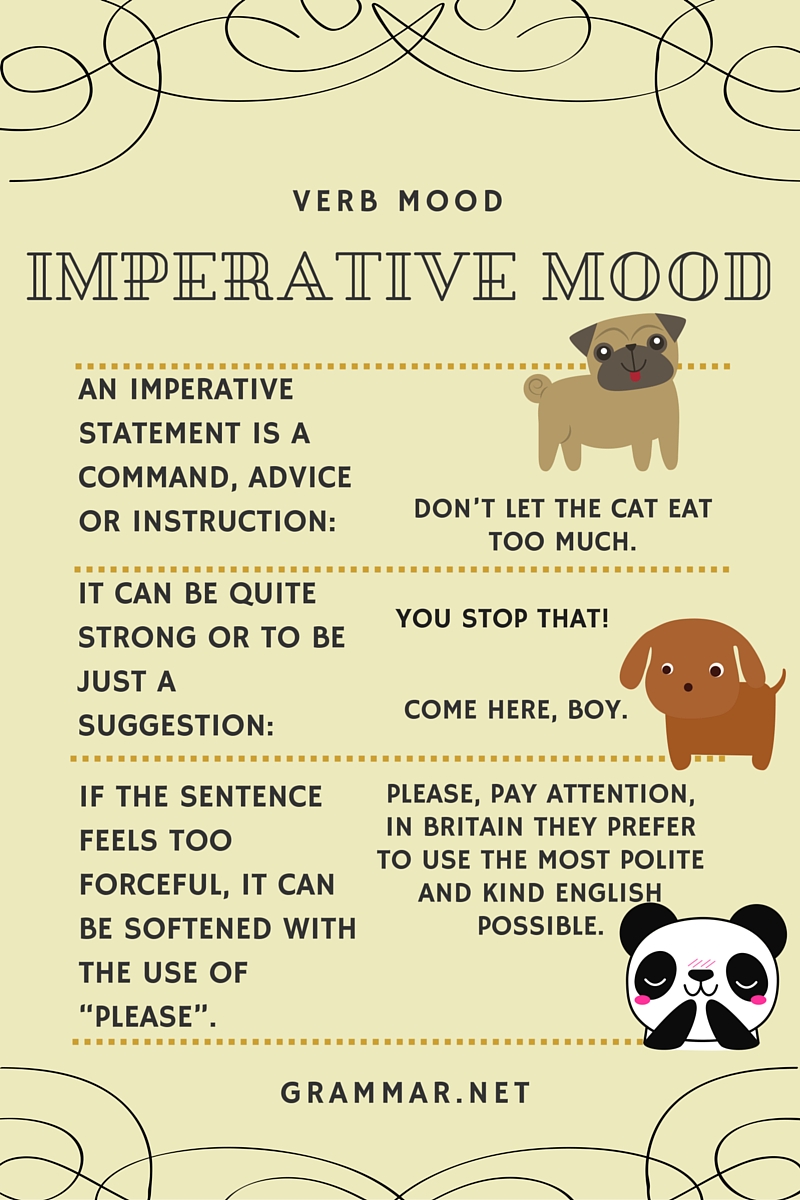In English, each sentence has a mood, that is expressed through the verb. Verb moods are indicative, interrogative, subjunctive/conditional and imperative.
Imperative Mood
An imperative statement is a command, advice or instruction; it can be quite strong or to be just a suggestion. This type of sentence does not typically name a subject as it is understood as “you,” though “you” or another subject can be used for emphasis. A way to remember: “It is ‘imperative’ to remember the imperative mood.”
“Take this pie home with you.”
“Don’t let the cat eat too much.”
“Put your left foot in, put your left foot out; put your left foot in and shake it all about.”
“Settle down.”
“You stop that!”
“Come here, young man.”
If the sentence feels too forceful, it can be softened with the use of “please” or other such words or phrases, but it can also be strengthened with punctuation and by shortening it.
“Please send me my favorite hat.”
“Send me my favorite hat.”
“Send my hat.”
“You send my hat!”
“Please, pay attention, in Britain they prefer to use the most polite and kind English possible.”
Other Examples of Verb Mood
Indicative
Most English statements are in the indicative, which is used to state facts. It “indicates” something.
“The sun is shining.”
“Frank is at the zoo.”
Interrogative
An interrogative statement asks a question. A way to remember is to think of detective movies, where suspects are “interrogated” in the “interrogation room.”
“Where is Bob?”
“Who ate my burrito?”
Subjunctive
This is a wish, a possibility or is hypothetical and is not reality.
“Her doctor suggests she take more vitamins.”
“I wish I had a new puppy.”
Conditional
A conditional statement explains what might happen under certain “conditions.”
“We will stay home if it rains.”
“You might look nice with red hair.”








